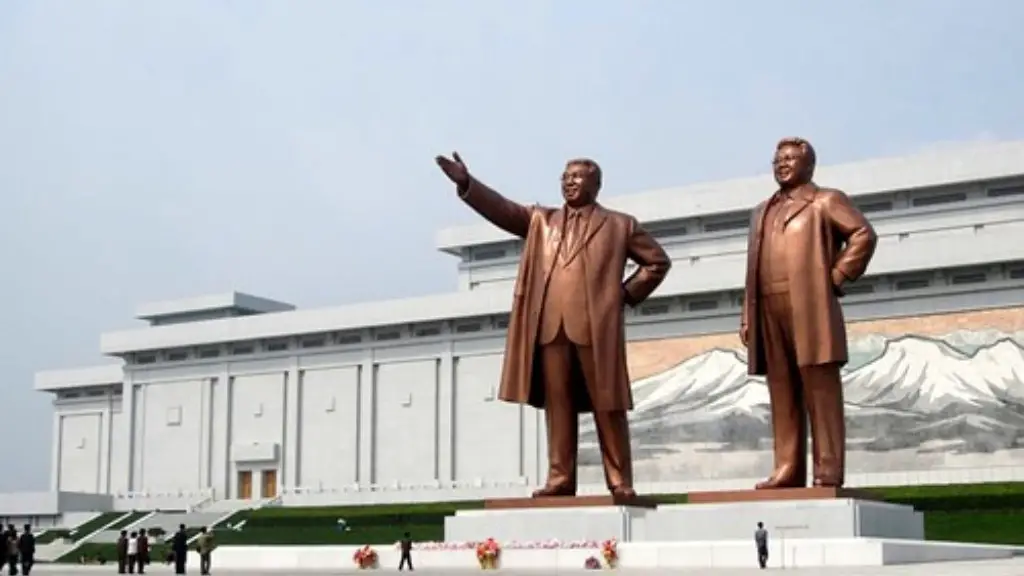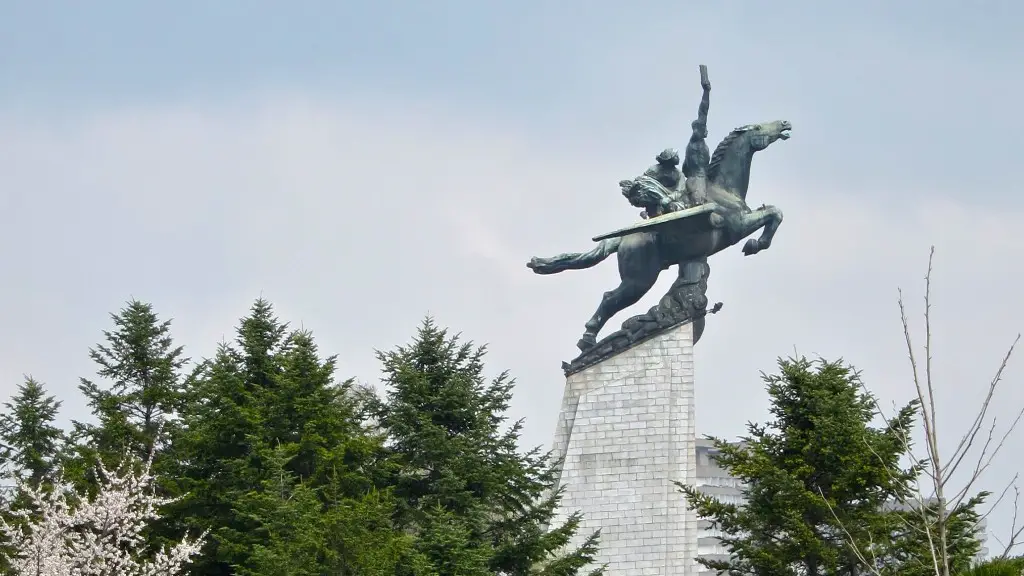North Korea has remained largely secretive and closed off, not just to the world, but also to its own citizens. As a result, it has been difficult to accurately assess how the country is making money. Nonetheless, there are a few possible sources of income and profit for North Korea.
One of the primary sources of income for North Korea comes from exports, primarily to China. North Korea exports a number of items, including coal and minerals, consumer electronics, food and agricultural products, and even cars. According to experts, this is a significant contributor to the North Korean economy, accounting for an estimated 40 to 60 percent of its exports.
Although sanctions have frequently been used as a tool to try and limit North Korea’s economic activity, the country has found other sources of income. It is widely believed that North Korea has engaged in a number of illegal activities, such as counterfeiting foreign currency and selling weapons, to name a few. According to experts, it is likely that North Korea has earned an estimated $1.1 billion to $2.3 billion in total revenue through illicit activities since the 1990s.
The arms industry is another significant contributor to North Korea’s income. North Korea has been producing and selling weapons since the end of the Korean War in 1953. As a result, it is estimated that the North Korean arms industry has earned the country an estimated $150 million to $200 million annually.
In addition to earning money through export sales, illegal activities and arms sales, North Korea has also gained revenue from other sources. Tourism is one of the countries’ sources of income, as is mining. According to experts, the mining industry in North Korea was estimated to be worth $450 million in 2011. It is also believed that North Korea has earned money through online gambling operations, although it is uncertain how much.
North Korea is also suspected of using cyber-attacks to try and generate income. For instance, in 2017, North Korea was linked to the WannaCry ransomware attack, which crippled thousands of computer systems and businesses around the world. Although the exact amount of money North Korea has earned from its cyber-attacks is unknown, experts believe it could be in the range of hundreds of millions of dollars.
State-owned Enterprises
State-owned enterprises (SOEs) are another source of income for North Korea. SOEs are owned and operated by the government and typically involve businesses based in real estate, services, manufacturing, and more. It is believed that the SOEs account for up to 30 percent of North Korea’s GDP.
North Korea also uses revenues from international adoptions to fund its economy. Since the 1990s, North Korea has allowed foreign families to adopt their orphaned and abandoned children. Although the exact amount of money North Korea earns from the practice is unknown, it is believed to be significant.
Finally, North Korea has also been known to use foreign aid to fund its economy. Although it is hard to quantify the exact amount of aid that North Korea has received, experts estimate that it has been in the millions of dollars.
Sanctions and Aid
Sanctions have been imposed by the United Nations on North Korea, in an effort to limit the country’s ability to generate income and further its nuclear weapons program. Despite the sanctions, it appears that North Korea has been able to find ways to generate revenue. Sanctions have, however, had an impact, as experts estimate that North Korea has lost $16.7 billion in revenue as a result.
Conversely, North Korea has also received various forms of foreign aid from countries such as South Korea, Japan, China, and the United States. Although the exact amount and purpose of the aid is unknown, it is believed that North Korea has received tens of millions of dollars in aid since the 1950s.
Criticism and Complicity
North Korea’s income-generation methods have been widely criticized, particularly due to its human rights record. North Korea is infamous for its labor camps, which reportedly hold hundreds of thousands of political prisoners, and a general disregard for the basic rights of its citizens. As a result, many countries have called for North Korea to end its inhumane practices and for international organizations to impose strict economic sanctions.
Nonetheless, it appears that North Korea has managed to find ways to generate income, even with the sanctions in place. Although it is difficult to assess exactly how North Korea is generating its revenue, it is believed that a significant amount of the money comes from illegal activities, such as arms sales and cyber-attacks, as well as from exporting goods and services, foreign aid, and state-owned enterprises.
Public Opinion
North Korea’s income-generating methods draw a range of opinions, both positive and negative. Supporters view North Korea’s efforts as a means of survival and a way for the country to develop its economy, while critics argue that the money is being used to fund the nuclear weapons program and other weapons of mass destruction.
Some people also view North Korea’s income-generating methods as immoral, given the country’s human rights record. On the other hand, some argue that North Korea relies on the money to fund basic goods and services for its citizens, and that sanctions and foreign aid are the only sources of support for the country.
International Response
The international community has responded to North Korea’s income-generating methods with both criticism and concern. The United Nations has imposed a range of sanctions on North Korea, in an effort to limit the country’s access to income and resources. Additionally, many countries have also put diplomatic pressure on North Korea, both in the form of embargoes and sanctions.
In spite of these efforts, it is believed that North Korea has been able to find alternative means to generate revenue. However, it is important to note that the exact amount of money North Korea has been able to generate through its various means is largely unknown.
Economic Development
North Korea has seen some economic improvement over the past few years, though the country’s economic development remains limited. Despite this, North Korea’s income-generating methods have enabled the country to develop its economy in certain ways. For example, the country has built large infrastructure projects, including hydroelectric dams, highways, and rail networks.
North Korea has also opened a number of special economic zones, which are intended to attract foreign investment and boost the country’s economy. However, these efforts have largely been unsuccessful, as the country has struggled to attract foreign investors due to its repressive government and international sanctions.
North Korea has also reported an increase in domestic consumption in recent years. This is attributed to the country’s income-generating methods, as well as foreign aid, which has been used to fund basic goods and infrastructure projects. Nonetheless, the country still faces widespread poverty and malnutrition.
Conclusion
North Korea remains a largely mysterious and secretive state, making it difficult to accurately assess how the country is generating income. Nonetheless, it is believed that North Korea has managed to supplement its income through various sources, including exports, arms sales, illicit activities, foreign aid, and state-owned enterprises. It is also believed that the country has managed to use this money to fund its economy, though the exact amount and purpose is unknown. While the international community has responded with criticism and sanctions, North Korea has been able to find alternative ways to generate income.





